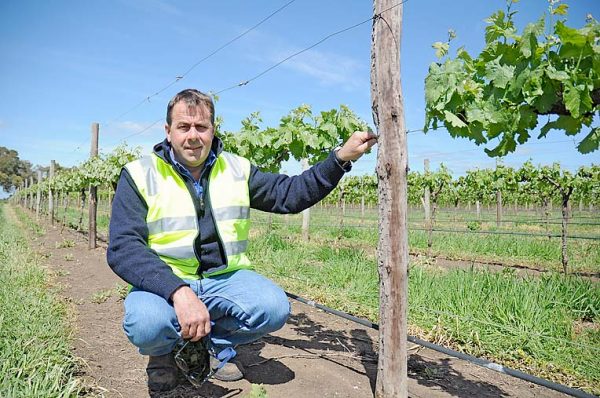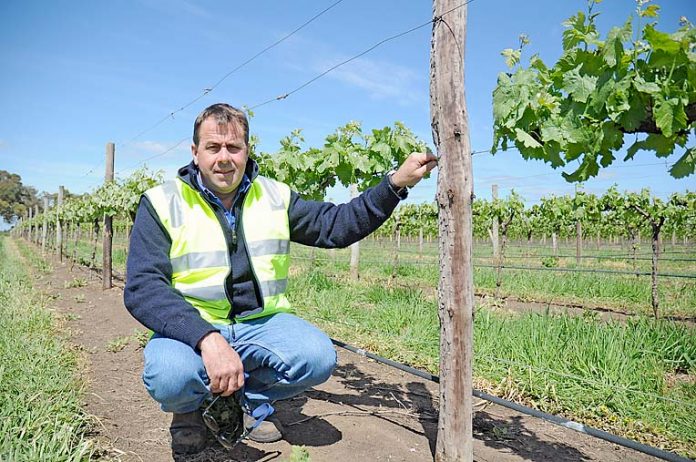
A SHORTAGE of timber posts for the region’s viticultural sector is fuelling fresh concerns over the high number of export pulp logs flowing to the Port of Portland.
With the regional timber industry enjoying a sustained upswing in demand, regional vignerons are struggling to find posts to maintain and expand their vineyards.
Claims have emerged a large amount of timber suitable for the production of posts is being exported through Port of Portland, which is now among the world’s largest wood export facilities.
Figures suggest 1.5 million tonnes of wood was exported from the Victorian port last financial year and the nation’s vineyards need a staggering 3.3 million replacement posts per annum.
Prominent Coonawarra vigneron Pete Balnaves is among industry leaders warning the shortage of posts is becoming a headache for viticulturists and could hamper industry expansion.
It is understood some vignerons are now turning to steel posts because of the shortage and one post treatment plant in Victoria is closing its doors due to a lack of raw material.
While a cluster of plantation owners are now exporting pulp logs out of Portland, the region’s biggest grower OneFortyOne Plantations (OFO) says it is trying to respond to an upswing in the demand for posts.
In fact, it says it is now supplying a record number of posts to the domestic market.
“The current market for all timber remains strong and some consumers have experienced longer delivery times for certain products as a result,” OFO Green Triangle general manager Willie van Niekerk said.
But he said the strength of the market at present was terrific news for our Green Triangle forestry and timber processing industries and the broader community.
“As a result of continued strong domestic demand over the past five years, OneFortyOne has increased the number of post customers the forests supply to and have also increased the volume supplied to those customers,” Mr van Niekerk said.
He said the current building boom combined with a buoyant rural sector had gone on for longer than everyone expected and had, at times, stretched timber processors capacity to meet demand.
“This high demand for posts is unusual and far exceeds that seen over the past decade. OneFortyOne are currently supplying posts at higher levels than ever before in our history.”
Coonawarra vigneron Pete Balnaves said he was unsure what was fuelling the shortage of posts given there were still plenty of plantations in the region.
“The availability of posts is really limited and it makes planning quite difficult,” Mr Balnaves told The Border Watch.
He said Coonawarra was home to 5500 hectares so the demand was high for posts.
“It is a bit of a concern because obviously from an industry point of view we want to support the timber industry in buyer posts, but in order to do that we need availability,” the prominent vigneron said.
Due to availability issues, Mr Balnaves said some companies had moved towards using steel posts.
“That is the choice of the individual, but our preference would be to use pine posts because of the way they hold the trellis structure in place,” he said.
He questioned whether the issue could also be related to less pine post treatment plants in the state, which was affecting throughput.
Mr Balnaves called on the timber industry to respond to the post shortage.
“I would like to think there would be some way for the timber industry to deal with the demand for posts so people can continue to use them,” he said.
He warned if pine posts were not available more vignerons would move across to steel.
“But let’s hope they work it out because it is not just only in viticulture where the posts are an issue, it is also for farm fencing,” Mr Balnaves said.
He said frost control systems were also easier to install on pine posts.
“There are a lot of good reasons to keep on using pine, but availability will be the issue.”








